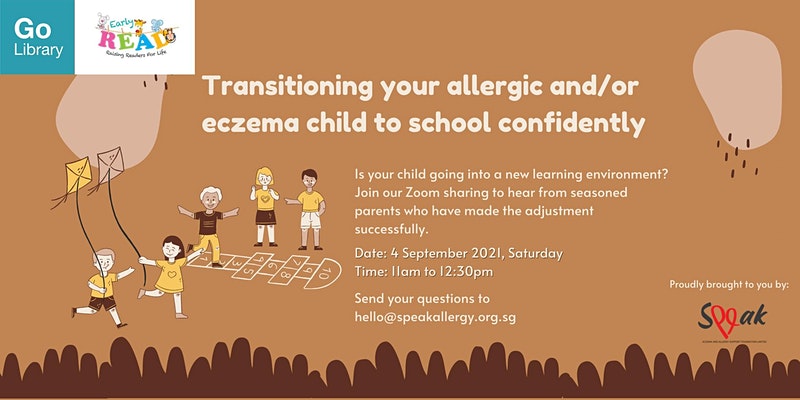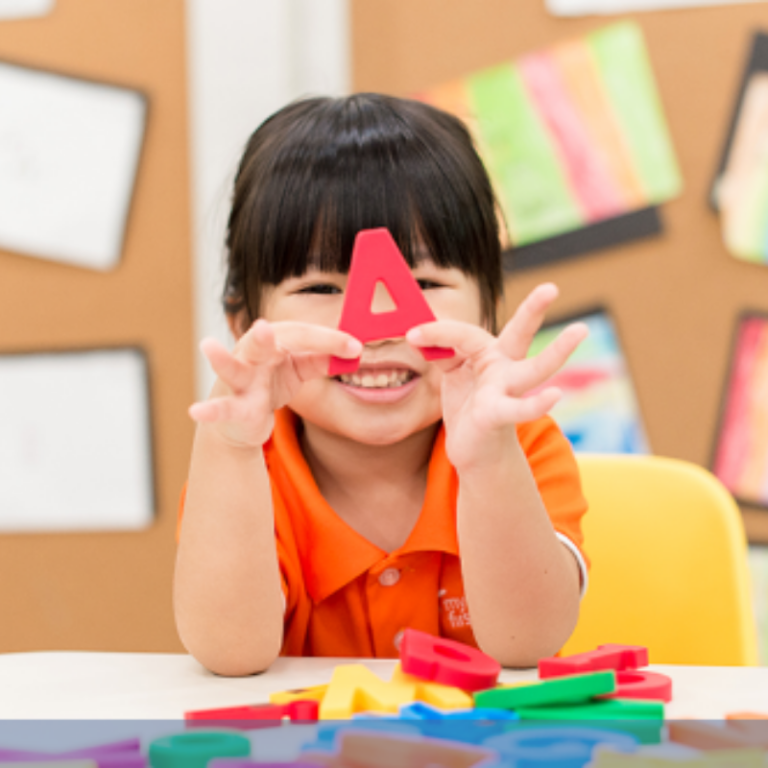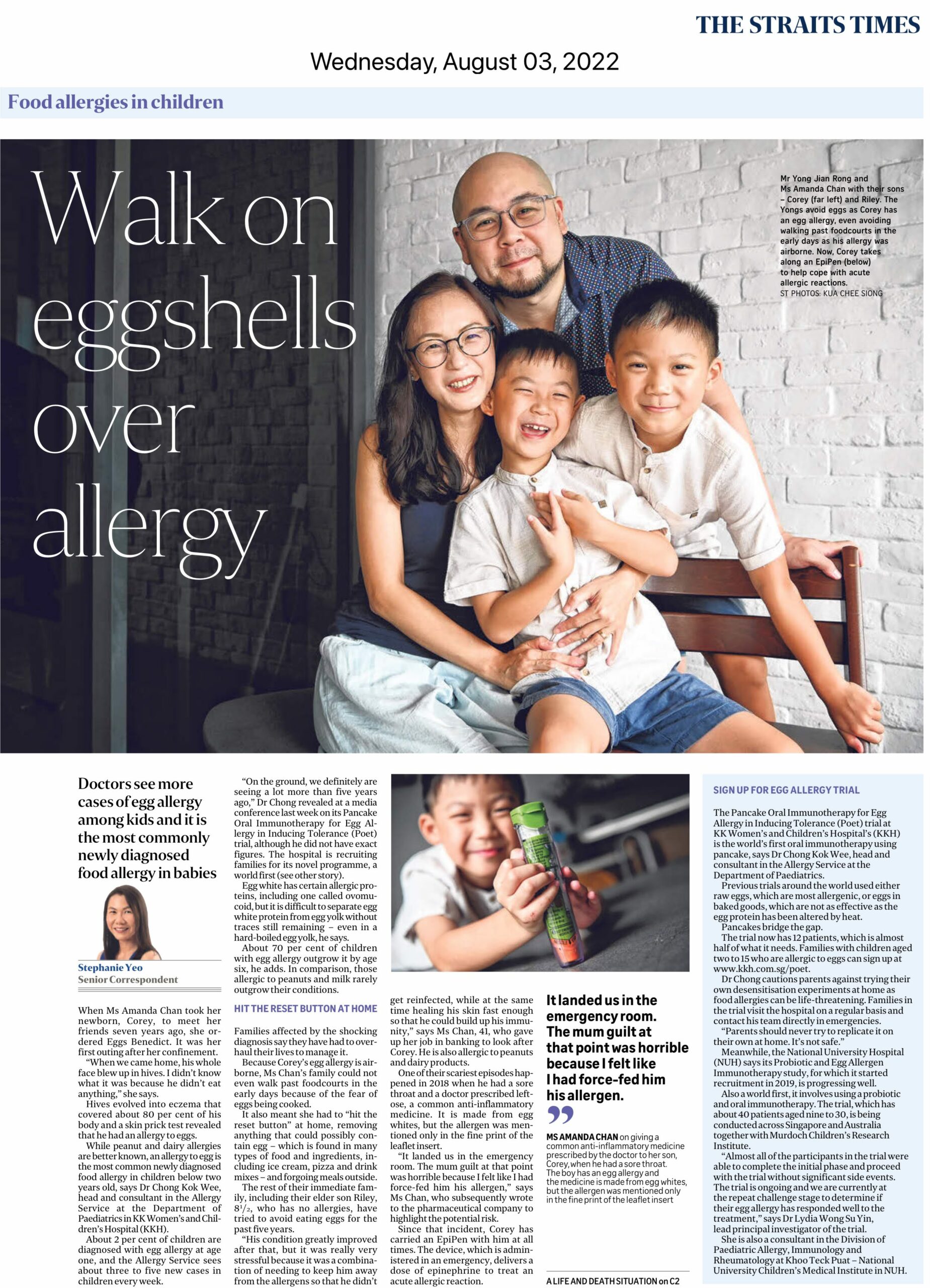
(Photo credit: My First Skool)
Sending a food-allergic child or a child with eczema off to preschool can be a daunting step for parents. For some, it may be the first time they’re handing their little one over to a person outside the family for child caregiving.
Throw food allergies and eczema in the mix and you may get a nervous parent who doesn’t know where to begin, or how to prepare themselves and their child for the transition.
We spoke with Ms Thian Ai Ling, General Manager at My First Skool, NTUC First Campus on how parents can support teachers and childcare workers in caring for their children. My First Skool is one of the largest pre-school operators in Singapore with over 140 pre-schools islandwide,
On this Teachers’ Day, SPEAK honours and thanks all childcare workers and teachers for the support they’ve given in ensuring that food-allergic children and children with eczema learn and play in a safe and inclusive environment!
If you’d like to hear from seasoned parents on practical tips for a successful transition to a new learning environment, check out our Zoom discussion on 4 September 2021 jointly organised with the National Library Board. Register on Eventbrite here.

SPEAK: What are the difficulties My First Skool faces when dealing with multiple kids with multiple and unique dietary requirements and allergies? How can parents support the school to make it easier for both the preschool and themselves?
Ms Thian: Because of our group care setting, it can be quite challenging to design and put in place a fixed support system to care for multiple children with different medical allergies. We must assess the level of care required for each child and then seek the understanding of parents on how our teachers can do their part to best support the needs of these children. This is usually possible when parents are understanding and can partner the teachers to develop these support plans.
What preparations would you advise parents to make when communicating with the pre-school about food allergy or skincare?
Ms Thian: At the start of the enrolment journey or the start of each academic year, we will advise parents to share the medical memo/advice issued by the doctors, which shares details such as the specific allergy, how the child needs to be cared for, and what parents/teachers can do when the child develops an allergic reaction. Parents can also share with our teachers how they will typically respond and support their children at home when confronted with these allergies.
The information will be useful for our teachers to make the necessary preparations and also have the knowledge to respond to these potential situations. Also, having the parents offering to be available, when teachers need to contact them to check in during any such allergy situations, will be most useful too.
What are your tips on helping parents manage food storage and meals (if they’re providing meals themselves)?
Ms Thian: Parents will know best what food to prepare for their child if he/she has food allergies.
Given that the food prepared will have to last for several hours, parents should consider what will be the appropriate food/meals that can be kept fresh through the day. We would typically advise parents to ensure that food is stored in appropriate (separate) containers and kept warm. We would advise parents, if possible, to come to our centre, and hand the food pack directly to teachers nearer to lunch time as children do come to our preschools very early in the morning and it is not ideal to keep the food for hours before serving the child.
What is your advice on helping parents prepare their allergic children for pre-school?
Ms Thian: Parents should speak to their children, allowing them to understand their unique needs, and how the preschool teachers will be supporting them. This is especially important for the older children in the older age groups; parents can share with their children about their allergies and teach them how they can be responsible to take care of themselves at school too. Parents can remind the children of the food types they should avoid and encourage their children to share with their friends about their unique needs.
Parents should also have conversations with the centre’s principal and/or teachers and share all the information relating to the allergies the child has, understand the environment setting of the school and have an open mind to listen and partner the school in developing a shared care plan.

(Photo credit: My First Skool)
How can children with dietary restrictions feel included especially on special events like birthdays and class parties where food is often involved?
Ms Thian: At My First Skool, as part of our sustainability and healthy eating efforts, we have not celebrated children’s birthdays with cake cutting, but instead seek many alternative ways to celebrate the special days of the children. Parents are aware of this focus, and they are all very supportive too.
For other special events where special food items could be shared with the children, our teachers will share with the parents with children with allergies, and they can then decide on other possible/meaningful items for their children to enjoy, in the company of their friends during the special events. The focus of such events will also be more on the heritage, the significance and meaning of the food and not just about eating these.
Amelie and her classmates know not to share snacks and consume snacks from party packs without first asking their parents. Could you describe how the teachers impart this awareness?
(Amelie, who attends My First Skool, is the daughter of a SPEAK parent volunteer.)
Ms Thian: Every moment in our preschool presents opportunities for learning. Our teachers do leverage on the multiple opportunities during formal lessons or informal periods such as lunch-hour to talk about such topics around food intake, trying out new food items.
During the formal teaching moments in class, teachers will use stories and sometimes songs to narrate and reinforce such important lessons for our children. They will share examples of what children can do so that they ensure safe consumption of food and avoid the serious consequences of unsuitable foods.
Children are themselves great teachers and influencers. We do proactively give opportunities for children to share their experiences and buddy up to learn more about these topics. When the children understand, they can keep themselves safe, and they can also demonstrate a stronger sense of empathy for their friends with allergic reactions.
What’s the protocol when an allergic child is accidentally exposed to his/her allergen?
Ms Thian: We have an allergy emergency plan which is shared by parents and our teachers will adhere to strictly accordingly. Parents will also be informed immediately and depending on the situation and agreement with parents, we will send the child to seek immediate medical attention if required.
How does My First Skool partner with parents to ensure teachers are first aid trained/equipped with the knowledge to manage an allergic reaction (e.g. administer Epipen)?
Ms Thian: At My First Skool, first aid training is a mandatory course for all our educators. Teachers will be able to administer first aid based on the requirements in the course. Over and above this, should there be new and additional requirements, Principals and teachers will discuss with the parents and develop the care plan, including the knowledge and skills needed of the teachers to manage these allergic reactions.


